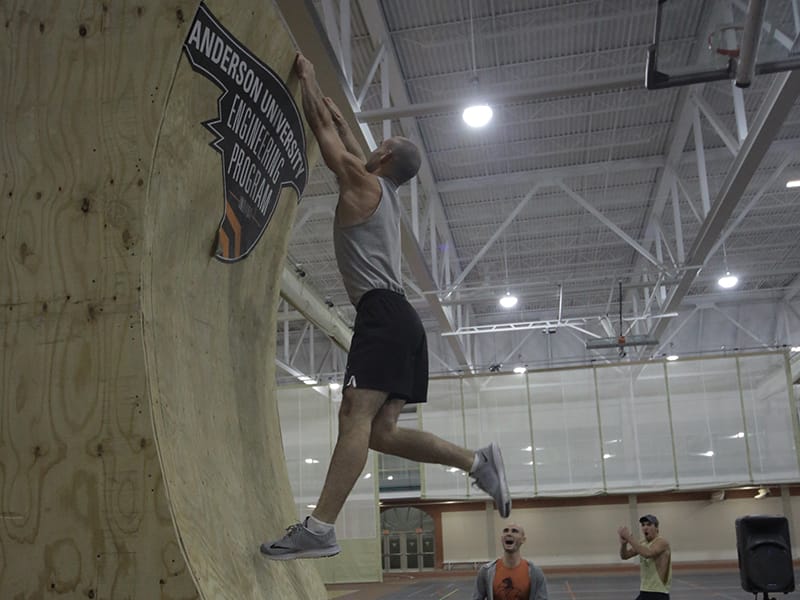getting involved
A great way to learn is to do.

AU students in the School of Science and Engineering find many ways to get involved both inside and outside the classroom. Honor societies provide opportunities to research and share knowledge with others both at AU and with students and professionals in their field. Student clubs provide a sense of community within each science area, both with fellow students and in mentorship with faculty members. Science-specific Study, Serve, Share (Tri-S) trips are also hosted throughout the year, providing professional experiences around the country and the globe, as well as time to engage with fellow students and staff.
Our students often find they have many opportunities for internships and summer research grants. Many companies actively seek after AU computer science and engineering students for summer internships. Additionally, we have a very high placement rate for our graduates in medical school, doctoral programs, business schools, and the job market, thanks in part to the excellent learning experiences students find in their extracurricular activities.
Association for Computing Machinery
ACM, the world’s largest educational and scientific computing society, delivers resources that advance computing as a science and a profession.
Cybersecurity Capture the Flag
Capture the Flag competitions provide cybersecurity students with a simulated environment to mirror real-world incidents that they are likely to encounter in their future career. The local competitions are held in a supportive environment, with faculty and students providing encouragement and guiding students as they enhance their cybersecurity skills.
Computer Science Hackathon
A hackathon is a fun, sprint-like exercise where computer science students collaborate to quickly create a software solution to a specific problem. Faculty and industry partners work together to create a rich and supportive environment for students to participate; in this way, students can make a difference in the world by solving a significant problem, often for a non-profit community group.
Engineering Student Club
Connects students at Anderson University of different majors, backgrounds, interests, and skill sets, Also offers activities such as guest speakers, field trips, and training opportunities in technical skills.
Honor Society for Mathematics
Kappa Mu Epsilon
Honor Society for Mathematics that recognizes outstanding achievement in the study of mathematics at the undergraduate level.
National Science & Math Honor Society
Sigma Zeta
National Science and Math Honor Society (Upsilon): The society’s purpose is to encourage and foster the attainment of knowledge in the natural and computer sciences and mathematics.
2021 Officers
- President: Conner Hoover
- Vice President: Lily Wallace
- Secretary: Jacob Moore
- Treasurer: Youselie Joseph
- Representative: Hannah Stockwell
Pre-Professional Health Society
This organization creates an awareness in students about the latest health issues, assists students in developing skills and leadership abilities, and educates pre-professional health students about internships, volunteer opportunities, and admission to professional schools.
Study, Serve, Share Program
Tri-S Program
Tri-S is a unique international and cross-cultural program that integrates service and learning. Science-specific Study, Serve, Share (Tri-S) trips have been hosted in the past. Check out the Tri-S webpage for upcoming trips.
Women in Computing
This informal student group invites women in computer science, cybersecurity, and computing-related majors to participate in social events, as well as hosting technology workshops. One recent workshop allowed students to create their own Lilypad Arduino Wearable Technology item, led by students who attended a conference talk by the inventor Leah Buechley.
Women in Science and Engineering
The WISE group participates in outreach events, such as “Passport to Hi-Tech” at Conner Prairie, organizes themed Chapel series on topics relevant to member interests, and coordinates get-togethers at off-campus locations, like conducting scientific baking experiments at faculty homes.
Discover how our students in engineering club worked together with student life to build a ninja warrior course! Once the course was built and it was ready for competition, engineering’s very own professor, Dr. Kyle Tarplee, completed the entire course alongside our students. This is what Real Life: Together looks like at AU.